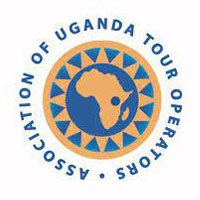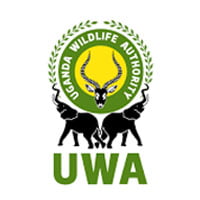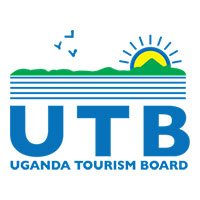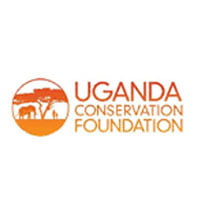Primates of Uganda: Primates play a major role in the development of Uganda’s tourism industry – and the related activity of conservation. Whereas Uganda is a small country, it is blessed with more than 13 different primate species and the highest concentration of both gorillas and chimpanzees.
The most popular of Uganda’s primates are the mountain gorillas, common chimpanzees and golden monkeys. All 3 of these animals are considered endangered and face some risk of extinction. Here is a summarized list of all the primates in Uganda, and some places where you can find them.
- Mountain Gorillas. Found in Bwindi Impenetrable and Mgahinga Gorilla National Park
- Chimpanzees. Found in Ngamba Island, Kibale, and Murchison Falls National Park
- Golden Monkeys. Found only in Mgahinga Gorilla National Park
- Black and White Colobus Monkeys. Found in Kibale, Murchison Falls, etc
- L’hoest Monkeys. Found in Kibale National Park
- Red-tailed Monkeys. Found in Ssese, Mabira, Kibale, etc
- Grey Cheeked Mangabey. Found in Kibale National Park
- Olive Baboons. Found in Kibale National Park
- Bushbaby. Found in Kibale and Semuliki National Park
- Vervet Monkey. Found in Kibale and Bigodi Swamp
- Patas Monkey. Found in Kibale National Park
- De Brazzas Monkey. Found in Kibale National Park
- Red Colobus Monkey. Found in Kibale, Semulik, Bigodi Swamp, etc
- Blue Monkeys. Found in Kibale, Queen Elizabeth and Bigodi Swamp
As you can tell from the list, a lot of primates reside in Kibale National Park. The only species you will not find in Kibale are gorillas and golden monkeys. That doesn’t mean that your chance of seeing primates is limited to just Kibale National Park, other parks also have primates especially the very common colobus monkeys, and the red-tailed monkey.
Uganda safari itineraries can be planned to take you to all places such that you can see all the primates. Any Safari to Kibale, Bwindi or Mgahinga National Parks will check off all the above primates. Safaris in Kidepo, Murchison, Lake Mburo, Queen Elizabeth, Mt. Elgon or Semuliki will also include very many primates along the way. In short, Uganda doesn’t lack primates – wherever you are.
Here are a few interesting itineraries that can inspire your next adventure into the famous primates of Uganda.
- 4 Days Uganda Gorilla Trekking Expedition
- 5 days Uganda gorilla trekking expedition
- 7 Days Uganda at Glance Safari Adventure
- 12 Days Ultimate Uganda Adventure
- 15 Days Ultimate Uganda Safari highlights
Effect Of Primates On Tourism.
Uganda’s primates are not just treasured encounters for the visitors who find them in their natural habitat. These primates play an important role in Uganda’s tourism. Let’s see how.
1. Generating Revenue
According to the Uganda Bureau of Statistics, Uganda got 1.8 million tourists in 2018 – a significant increase from 1.4 million tourists in 2017. This increase now has tourism contributing more than 20% of Uganda’s total exports.
Uganda’s major tourist attractions are the mountain gorillas in Bwindi, Chimpanzees in Kibale and golden monkeys in Mgahinga. Wildlife safaris in the savannah parks do contribute a lot too, but the main differentiating factor for Uganda from other African countries is the incredible primates of Uganda.
So much more is being done to promote and diversify Uganda’s tourism industry – while utilizing the advantage played by primates.
In 2017 alone, more than 15,000 people visited Uganda to see mountain gorillas. The Uganda Wildlife Authority predicts that the number will keep increasing to more than 25,000 people. This success of gorillas has made the selling of other tourism experiences more conducive.
2. Employment Opportunities
With the above point on generating revenue, it is safe to automatically assume the creation of jobs. The effect of Uganda’s primates trickles down to employ very many people as tour guides, writers, website designers, graphics designers, artists, hotel staff, drivers, and of course, tour operators like ourselves.
Employment to such a wide range of people helps support the lives of those people, their families and their nearby community. It is honestly hard to calculate how much of a difference gorillas, chimps and other monkeys have made to the lives of Ugandans.
The communities near the protected areas get a direct percentage of the proceeds from tourism to help fund community-benefiting projects such as schools, and hospitals or help their poorest member. This is in addition to employing them in any of the above roles.
Effect of Primates On Conservation.
Uganda’s Primates play an important role as far as preservation and conservation of nature are concerned. The effects of revenue and employment (already stated above) can only be positive.
Through the money generated, a direct percentage is given to the local neighbouring community of each of the parks – to help fund and sustain community development projects and infrastructure. This development helps the community to see the value of these protected areas and to actively engage in conserving the habitats which these primates so badly need.
When more people are involved ( and benefiting) from the activities which result in primate tourism, the work of conservation becomes easier – because the biggest threat to any conservation effort is humans.
Challenges Faced By Uganda’s Primates
1. Habitat Loss
The competition for land between humans and wildlife always ends up badly for the wildlife. This is true for primates in Uganda. While encroachment on protected land for agriculture is strictly dealt with, there is no safety for the primates which wander past the protected zones. This is one of the reasons why there are many orphaned and wounded primates. For example, the 50 + chimpanzees in Ngamba Sanctuary.
2. Diseases
Infectious diseases are also a great threat to these primates. They are our closest evolutionary relatives and have a high chances of catching human diseases. Diseases ranging from the common flu to Ebola can easily infect these primates and spread far enough to eliminate big populations.
The other disease which can easily be transmitted from humans to primates is yellow fever. This is why yellow fever vaccination is prioritized when entering Uganda, in affirmation of the WHO directive to ensure the safety of both humans and wildlife.
The biggest enemy and challenge to these primates are the human beings that encroach on their habitats. They are being squeezed in smaller and smaller areas due to deforestation for timber and agricultural purposes and this hinders them from living peacefully.
What’s Being Done?
Mountain Gorillas and the Common Chimpanzee are classified as endangered species according to the International Union for Conservation of Nature (IUCN) Red List. The Uganda Wildlife Authority (UWA) is the body in Uganda specifically responsible for this mandate and in 2019 they registered a win when the bill was passed in parliament by the Head of State to roll the ball to major reforms in the industry.
The Uganda Wildlife Act 2019 was signed on July 1st, 2019 detailing the conservation of wildlife, empowering the role of the Uganda Wildlife Authority, and the roles and responsibilities of the different institutions that are involved in wildlife management.
In the Uganda Wildlife Act Part 1 Article 2 Subsection (1) (a) The Purpose of the act clearly states that; “the conservation of wildlife throughout Uganda so that the abundance and diversity of their species are maintained at the optimum levels commensurate with other forms of land use, to support the utilization of wildlife for the benefit of the people of Uganda”
While subsection (1) (c) provides for “the protection of rare, endangered and endemic species of wild plants and animals”
This shows how much effort and reformative strategies are being put in place to ensure that endangered animals like the primates in Uganda are conserved and protected from the negative factors that they face.
Furthermore, UWA has increased skilled personnel aimed at monitoring and protecting primates and increased their remunerations while at it. Mr Gesa Simplicious the UWA’s PR confirmed that they were working together with NGOs like the International Gorilla Conservation Programme (IGCP) to carry out research valid and valuable in protecting these primates in their natural habitats.
Community Roles
The Locals around game parks like Bwindi have been sensitized in ways to curb the possible conflict with the gorillas. Projects like Human-Gorilla Conflict (HUGO) are in place with local people trained on steps to take to ensure that gorillas are safely directed back to the Park once they wander past the boundaries and into the communities.
They are trained and supported by the UWA and IGCP which is a great working approach intended to be shared and used in the other places with the other primates.
CONCLUSION
You can already tell that these primates play an important role in Uganda’s tourism. development and environment conservation.
Here are some of our other articles that are related to this one.
- 25 fun facts to know about gorillas
- Chimpanzee Facts. Interesting facts about our closest animal cousins
- Gorilla Safaris. Everything you should know.
- Why are mountain gorillas endangered? Major threats to their future
Here are a few of our Uganda Safari Packages that involve seeing the various primates. Gorillas, Chimpanzees, monkeys and everything else. These can show you a clear idea of how Safari flows and what you can expect each day.
- 3 Days Rwanda To Uganda Gorilla Trekking Excursion
- 4 Days Uganda Gorilla Trekking Expedition
- 5-day Uganda primates flying safari. All-inclusive Safari package with Chimps & gorillas.
- 7 Days ‘Going Ape’ Gorilla & Chimpanzee tracking safari
- 7 Days Uganda at Glance safari adventure. With chimps, wildlife & gorillas
- 14 days Best of Uganda Wildlife & Gorilla Safari








